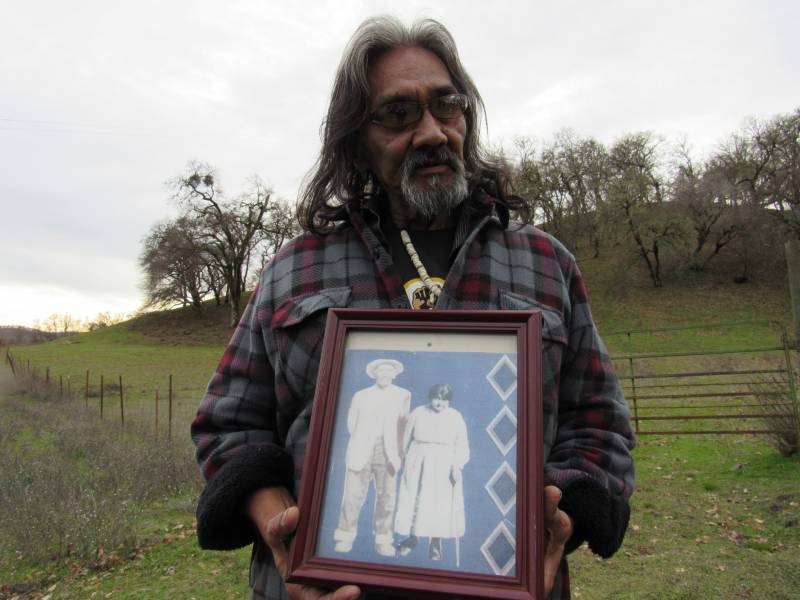How the Founder of California’s First Black Church Fought its Last Known Slavery Case
St. Andrews African Methodist Episcopal Church in Sacramento is the oldest African American Church on the West Coast. It was founded in 1850, a few months before California entered the union as a free state. But it’s complicated, because most African Americans were still brought here as slaves during the Gold Rush. St. Andrews became ground zero for anti-slavery and social justice activism. Its founder Daniel Blue is not someone they tell you about in school, but as Asal Ehsanipour explains, his story altered the course of California history.
Marking a California Massacre – With a Native Ceremony of Forgiveness
In May 1850, the US military sent forces to Lake County, north of Napa. Hundreds of indigenous Pomo were brutally killed. The incident, known as the Bloody Island Massacre, is a tragic chapter of California history. But for Clayton Duncan, it’s family history. His great-grandmother Lucy Moore was one of the few Pomo who survived the massacre, and he works hard to make sure people never forget what happened. This year, for the first time, Clayton is hosting the annual ceremony to mark the anniversary by livestream. Host Sasha Khokha brings us the story.
Sacheen Littlefeather on Her Life and Activism After Her Stand at the 1973 Oscars
Sacheen Littlefeather is best known for causing a massive uproar at the 1973 Academy Awards. She got up on stage, and calmly turned down Marlon Brando’s best actor accolade for “The Godfather.” Sacheen was a young Native American rights activist and budding actress when Brando asked her to represent him at the Oscars. She appeared in movies like “Johnny Firecloud” at a time when the entertainment industry was getting rich off racist stereotypes of Native Americans. After the anger she caused at the Oscars, Sacheen’s TV and movie career floundered. But her work as an activist took off. KQED’s Chloe Veltman caught up with Sacheen at her home in Marin County before shelter-in-place.

